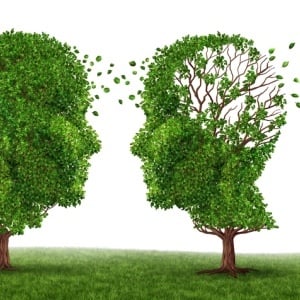
Researchers have found more evidence of a puzzling phenomenon: Older adults who survive cancer seem to be somewhat protected against dementia.
A number of studies in recent years have found that cancer survivors have a relatively lower risk of developing Alzheimer's.
Sharper memory skills
The new research adds another layer. It shows that even before their diagnosis, older adults who go on to develop cancer have an edge when it comes to memory performance.
Among the older Americans who were tracked for 16 years, those who developed cancer typically had sharper memory skills – both before and after the diagnosis – than those who remained cancer-free.
Researchers said it all supports the theory that some of the biological processes that contribute to cancer may actually protect against dementia.
But the big remaining question is, what are those mechanisms?
"We're really interested in understanding what [they] could be, because it might point the way to strategies to prevent dementia," said senior researcher Maria Glymour, a professor at the University of California, San Francisco School of Medicine.
The study findings are based on more than 14 500 US adults born before 1949. Between 1998 and 2014, they underwent periodic tests of memory function. During that time, 2 250 were newly diagnosed with cancer.
An enzyme called PIN1
On average, the study found, the people with cancer consistently performed better on memory tests. In the decade before the cancer diagnosis, their memory declined at a 10.5% slower rate than their counterparts who remained cancer-free.
After the diagnosis, cancer patients did typically see a sudden worsening in their memory for a short time. But afterward, their rate of memory decline continued at the same pace as before the diagnosis – which meant they maintained an advantage over cancer-free older adults.
There are theories as to why the pattern exists: Some of the mechanisms that allow cancer cells to grow and spread may, in the brain, protect cells from dying.
Glymour's team points to the example of an enzyme called PIN1: Its activity is enhanced in cancer, but decreased in Alzheimer's. Among other roles, the enzyme is thought to help prevent the build-up of abnormal proteins in the brain that are the hallmark of Alzheimer's.
But there is a lot of work to do before all the pieces can be put together, according to Glymour. One question is whether only certain cancer types are connected to a lower risk of memory decline and dementia.
In past studies, the link has been surprisingly consistent among different cancers, Glymour noted. "But," she said, "we think that might just be because there were not enough cases of different types of cancer to detect the differences."
A 'very useful contribution'
If larger studies do show that only certain cancers are tied to slower memory decline, Glymour noted, that could give clues about the underlying reasons.
Dr Olivia Okereke is director of geriatric psychiatry at Massachusetts General Hospital in Boston. She said the association between cancer and a lower risk of Alzheimer's is puzzling and "sounds counterintuitive" – since cancer, and some cancer treatments, can actually take a toll on mental skills such as attention, information-processing and short-term memory.
"But these associations have been noted in studies for years now," said Okereke, who wrote an editorial accompanying the research. Both were published online in JAMA Network Open.
She called the new study a "very useful contribution", because it shows the memory advantage exists before people ever develop cancer, then persists afterward.
That, Okereke said, suggests that "common underlying mechanisms" might contribute to cancer while protecting brain cells.
"But we need more research to elucidate those mechanisms," she added.
Image credit: iStock




 Publications
Publications
 Partners
Partners















